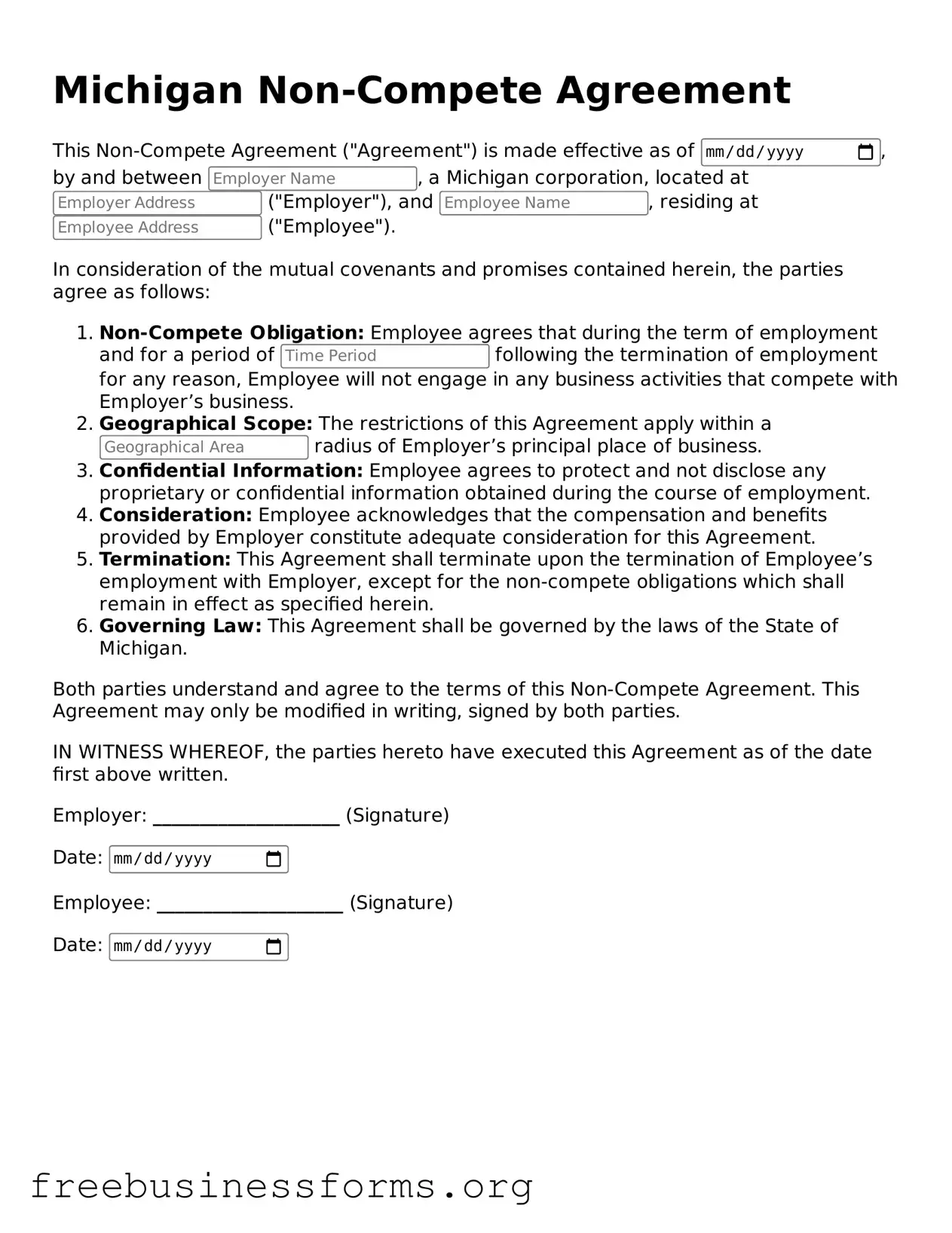Blank Non-compete Agreement Template for Michigan
A Michigan Non-compete Agreement form is a legal document designed to restrict an employee's ability to work for competitors or start a similar business after leaving a job. These agreements aim to protect the interests of employers by safeguarding sensitive information and trade secrets. Understanding the nuances of this form is essential for both employers and employees to ensure fair practices and compliance with state laws.
Open Form Here

Blank Non-compete Agreement Template for Michigan
Open Form Here

Open Form Here
or
↓ PDF File
Quickly complete this form online
Complete your Non-compete Agreement online quickly — edit, save, download.